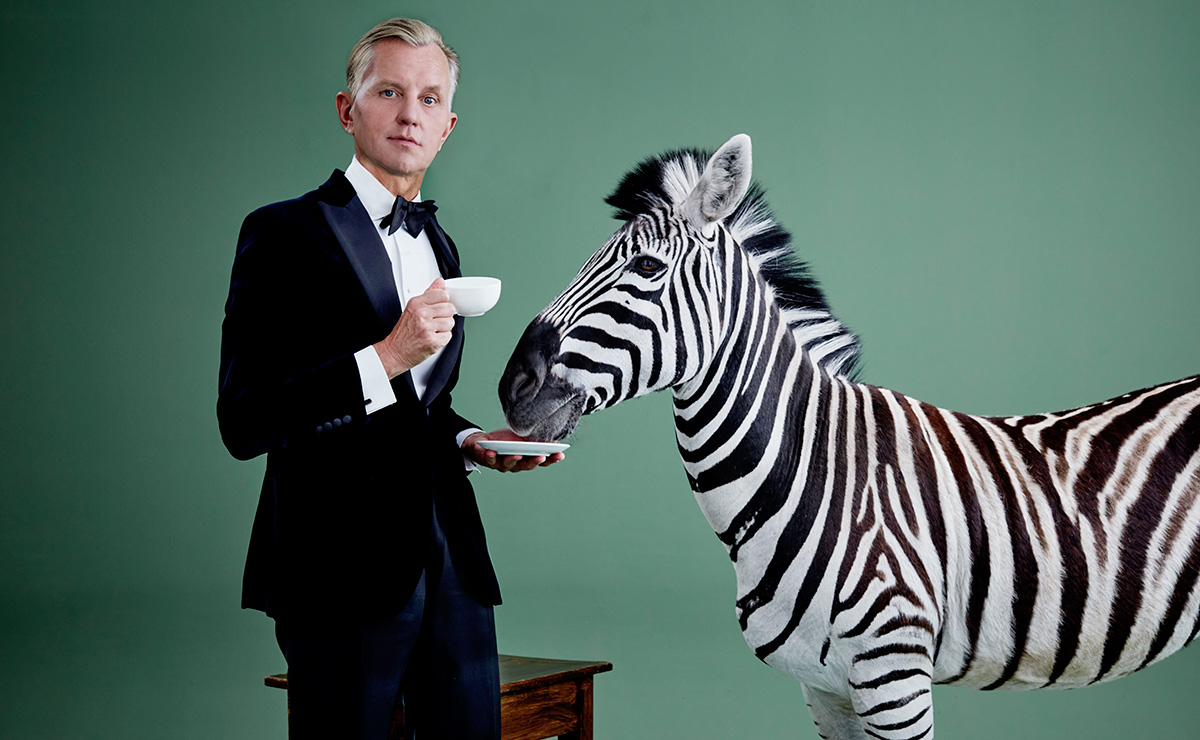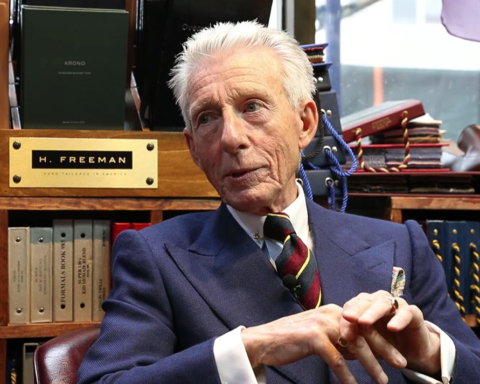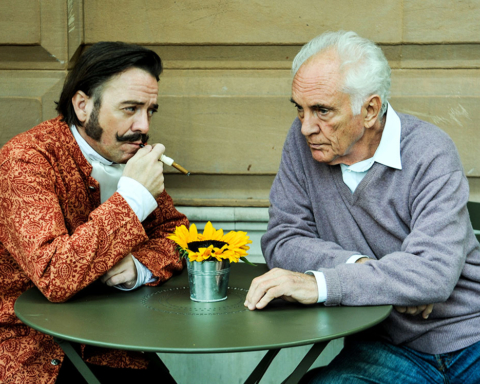Marie de Winter and Ferdinand Sturm meet the German singer to chat about his ideas on good style, tame zebras and his special relationship with the British Isles.
On stage is the Palast Orchester: eleven impeccably dressed gentlemen, and a lady in evening dress at the violin. A tall man in a velvet dinner jacket and black bow tie steps up to the microphone, singing the song Ich hör’ so gern Musik (I Love to Listen to Music) without any fuss, but with all the more presence: Max Raabe. In the audience there is spellbound silence.
In Germany, this singer is an institution when it comes to interpreting songs from the Weimar era, and he is so successful internationally that he has already wrapped the auditorium of New York’s Carnegie Hall around his little finger with ease. Occasionally, his own compositions sound as if they were lost works from the Roaring Twenties – always presented tongue-in-cheek and garnished with a pinch of dry humour. That humour also shines through when we meet Mr Raabe for an interview before one of his concerts.
Max, you are not only known for your music, but in a way you are a style icon.
Well, some say so, and others say so!
After all, in a recent music video you can be seen riding a bicycle in a dinner jacket.
That’s right.
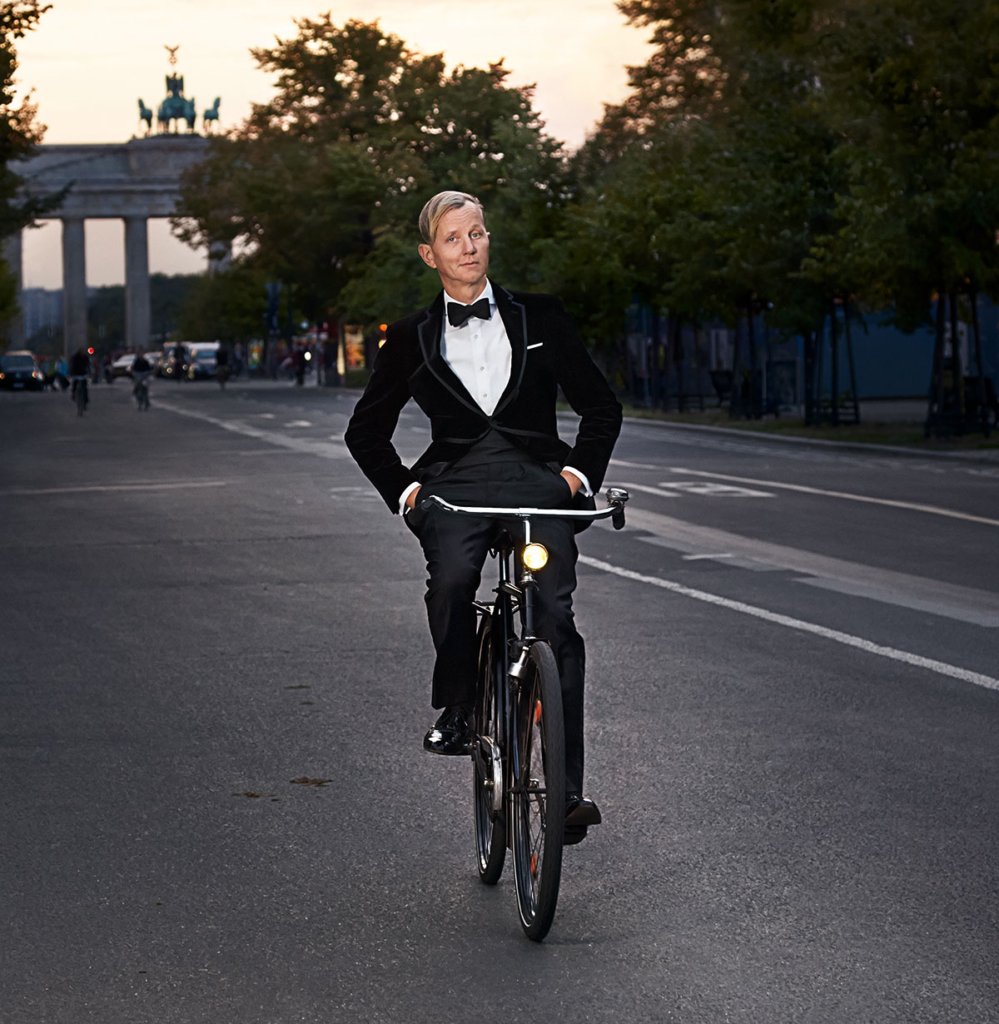
What does good style mean to you personally?
For me, good style has little to do with wardrobe, but more with inner attitude, with consideration, with the effort to get along well with each other in everyday life, showing respect …
Nevertheless, you are sitting in front of us dressed very stylishly.
Yes, but I’m questioning myself at the moment – checked shirt, checked jacket, that’s a no-go. But [laughs] I am now in ‘work mode’, so to speak, living out of a suitcase.
The motto of CHAP is: Expand your mind, refine your wardrobe. What do you think: Can you expand your mind by refining your wardrobe?
If it were only possible through the wardrobe, that would be sad. Different things come together. But I think if you value your wardrobe or your appearance, then you also have a certain care for yourself.
You are well known and successful in Great Britain. What do you think is the reason for that? Is there possibly something British about you?
Well, I think I am certainly ‘the German’ there. But the amazing thing is – I’ve also noticed this in the USA – they are actually very surprised by this very dry humour that I let shine through when introducing the next piece of music. What I say here in German can be translated wonderfully and very easily into many languages, because it is not a play on words, but rather a quirky train of thought that does not necessarily comment on the theme of the next piece, but rather grazes it … At the same time, of course, the audience also notices the musical precision and the seriousness with which we cultivate our repertoire. So, yes, they are very quirky, funny pieces, but purely musically we don’t approach them any differently than works by Mozart or Beethoven – everyone in the Palast Orchester is a trained musician. All these things possibly play together. And then of course there is this frightening look we bring to the stage [laughs].
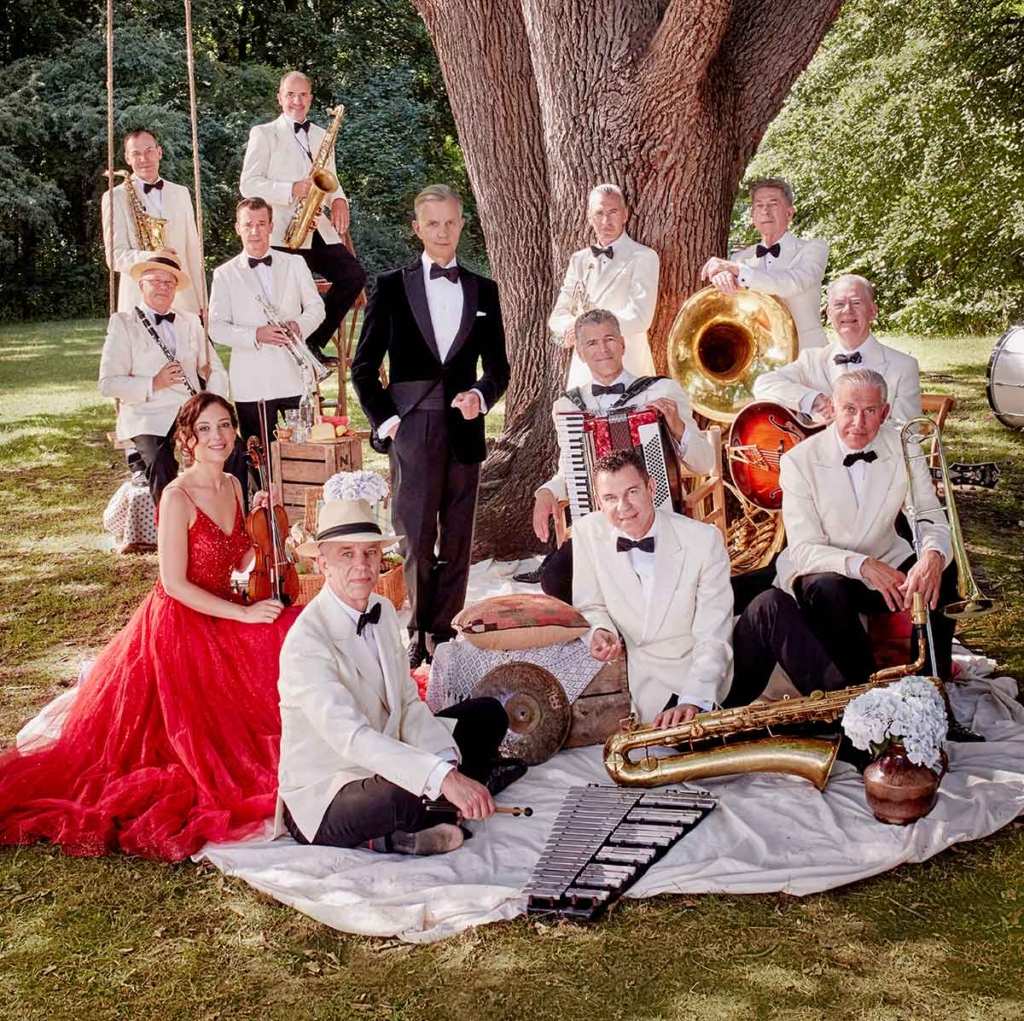
Is there a special anecdote you experienced during your concerts on the British Isles?
Yes, of course, we experienced several beautiful moments. Twice we played at the Twinwood Festival, where everyone, also the audience, was completely dressed in 1930s, 1940s style. Once we were invited to Westminster Abbey. During the war a magnificent old leaded glass window was destroyed, and the restoration was paid with the charity concert proceeds. What, so to speak, our grandparents had broken as Germans, we ‘sang together’ again. That was a great compliment for us.
On the cover of your new album Wer hat hier schlechte Laune (Who’s in a bad mood here), you walk across a zebra crossing with a zebra. Is the composition of the picture meant to be reminiscent of the Beatles’ Abbey Road?
This photo came about by chance in a way … According to the owner, this zebra was terribly bored during the Coronavirus time; it probably doesn’t even know it’s a zebra, because it’s incredibly friendly and probably thinks it’s a dog. Anyway, I got on well with the zebra. So we were in the studio, and at the end of the shoot the photographer said we might go outside to look for a nice scene. I didn’t feel like it at all, because it was 35 degrees Celsius. But then I’m thinking, “Wait, maybe there’s a zebra crossing out there?” Because, walking a zebra across a zebra crossing, I thought that was kind of quirky. I myself would never have been so presumptuous to walk alone across a zebra crossing … That would have been more than culturally presumptuous.
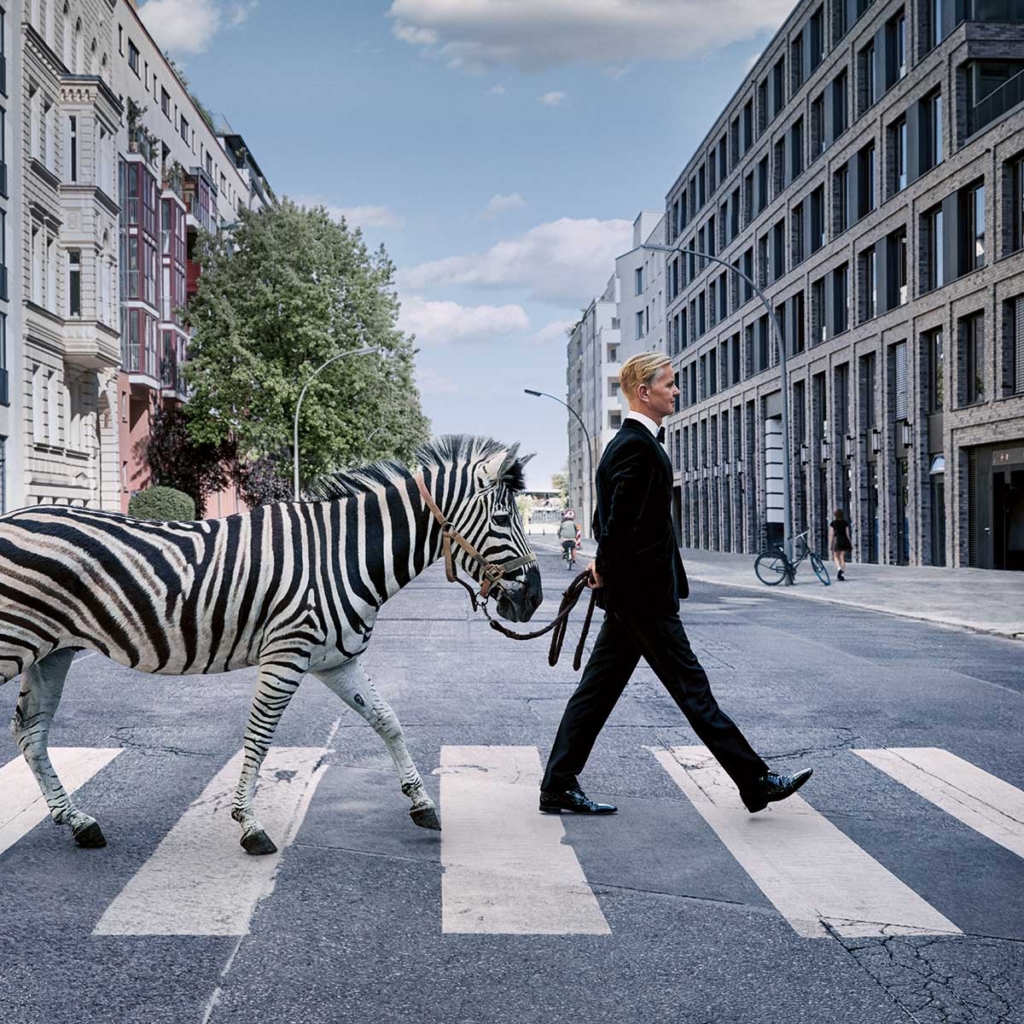
The title song of the TV series Babylon Berlin, which can be found on this album, is currently in the upper echelons of the charts.
Currently at number 3! I wrote Ein Tag wie Gold (A Day Like Gold) together with Annette Humpe, so it’s not an authentic 1930s number. Although I also get nice reviews, it could have been a lost piece by Kurt Weill and Berthold Brecht – that’s a nice compliment, of course … If you go to the concert today, you’ll see us play the repertoire of the 1920s, 1930s, and we also play our own pieces – both merge into each other. We lure the audience with our own pieces, so to speak, and enthral them with music that they might not have had a taste for before.
You present Ein Tag wie Gold twice in the last season of Babylon Berlin: At the beginning in the grand ballroom and at the end in a low pub. In which of the two settings did you personally feel more at home…
Low pub!
And why?
I love weird pubs like that, and anything that goes in the direction of those kind of pubs is great. Ok, if there’s smoking, it might get difficult for me, but otherwise you always meet the funniest people there.
The international vintage scene has been strongly influenced by several TV series in recent years. Do you see yourself as part of this vintage scene?
I’m not very consistent in my clothing at all. I virtually pinch from all eras and am not orthodox about it. Otherwise, I know this scene from the USA. At concerts in Los Angeles, and especially in San Francisco, the audience members in the first four rows were completely dressed like in the 1930s. That was very impressive. They are very clear in their attitude there. Just as punks or goths go to the supermarket here, they go to work there in their clothes – with their leather bag and their bowler or homburg. You can be sure that their homes will be decorated in the same way.
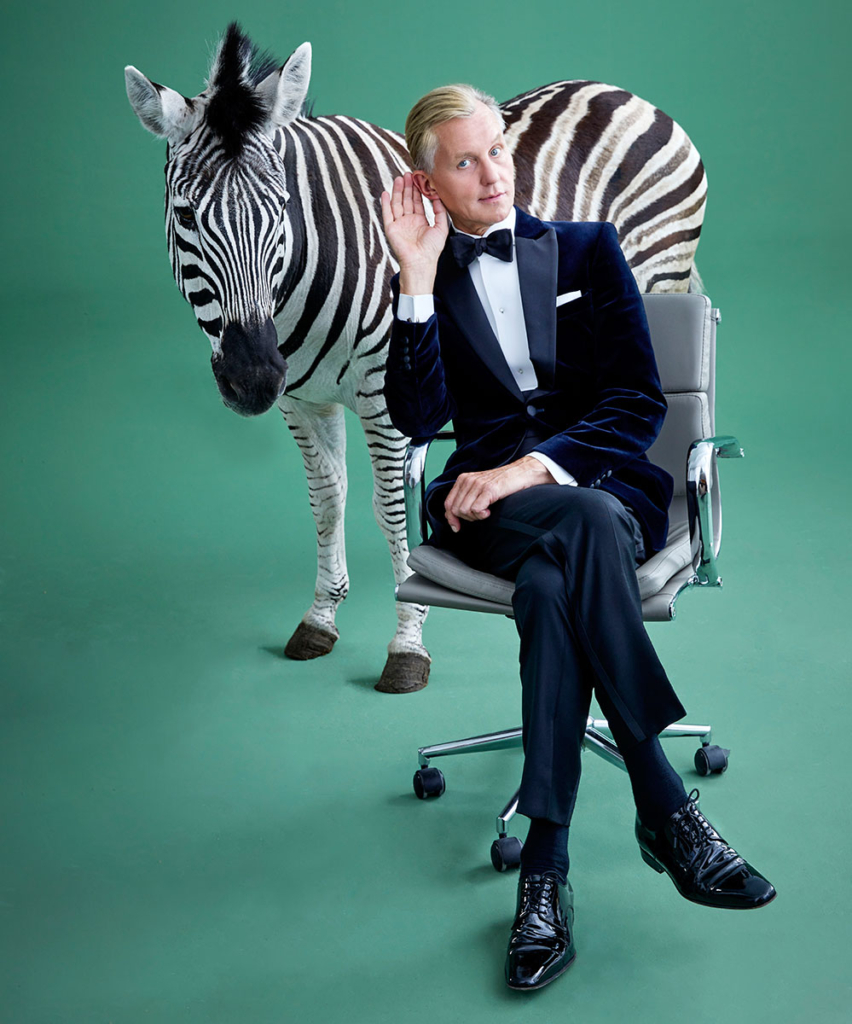
Do you yourself own any originals from that time – clothes, furniture or accessories?
Some of my furniture goes back to my student days. Back then I saw an enormous sofa with lion’s feet and had no idea where to put it; I didn’t have the right flat for it. But I thought to myself, “One day you’ll have that flat, and if you don’t buy it now, you’ll be miserable forever.” I actually never saw such a sofa again and I’m very happy that I still own it. But my furniture is above all comfortable and indeed reaches further into the past than into the present.
On stage you have a rather discreet and elegantly formal presentation style, I would say.
Yes, I’m acknowledging that in silence.
Did you have to work on this style, or does it correspond to your nature, so to speak?
When the Palast Orchester was founded, we were still students, and we were happy that the original orchestral arrangements from that time still existed, which we could fall back on. We had worked on them with great musical attention to detail. I actually thought about my clothes before our first gig too – I had found an old double-breasted suit in a second-hand shop somewhere, black, with pinstripes, but it wasn’t even a dinner jacket. And then before we performed, we had thought about everything except what I do when I go to the front of the stage. Then I went to the front and sang, and when I was done, I went back and did not sing. And then people said, “That’s great! You’re not doing anything.” And then I thought, “If that is the case, I’ll always do it like that from now on.”
This interview first appeared in CHAP Spring 23

